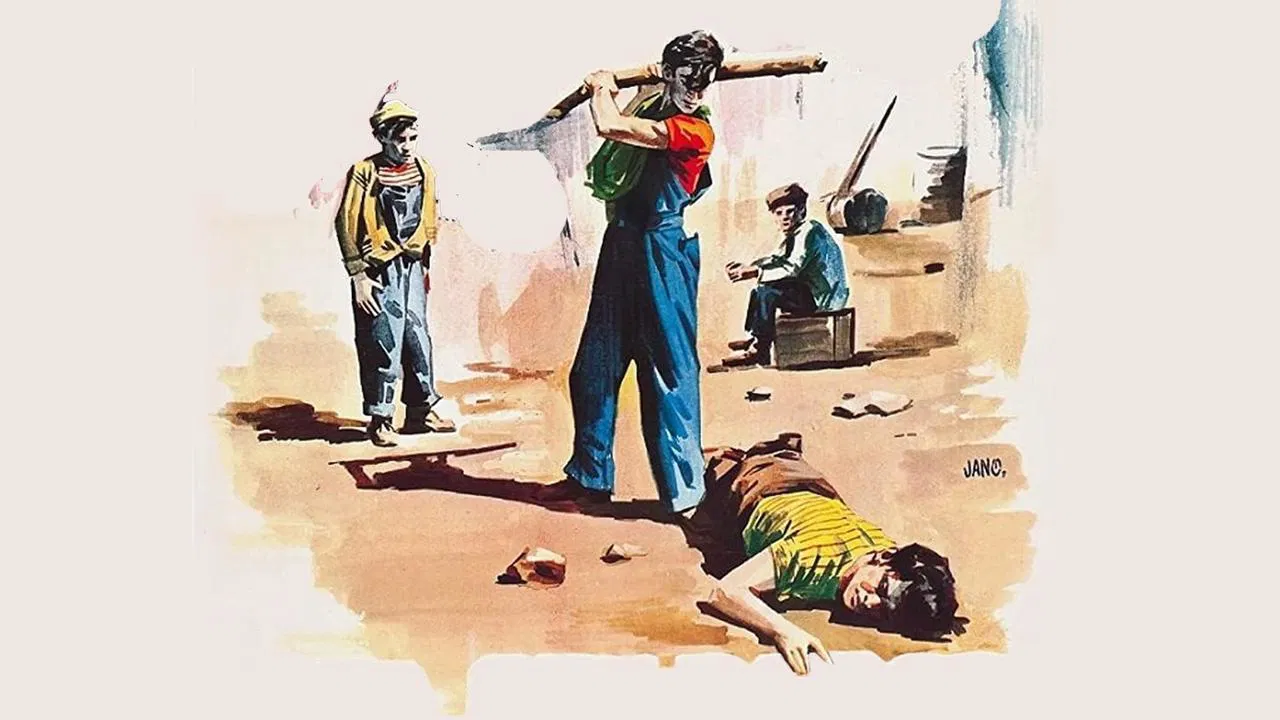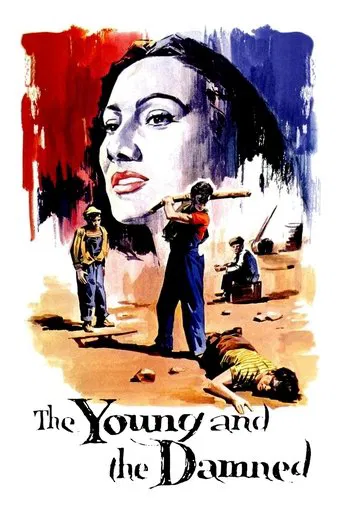

Until today, I had never seen Los Olvidados (The Forgotten Ones), and, like when I first saw De Sica's "Shoeshine", it made a very deep impression on me. Bunuel, exiled in Mexico since the end of the Spanish Civil War for political reasons, made a film he would have never been allowed to make in Spain at that time if he were in the country. He basically made a document on the lower classes living in the capital's most miserable suburbs (what in Brazil are known as "favelas") and their everyday struggle to survive. Young boys loiter in the streets all day long engaged in petty thieving, they don't go to school but are illiterate, and half of them don't even know who their father is. Then we follow the lives of two of them, "Ojitos" (Eyes), who has been dumped by his father and is picked up by a blind man to use him as his guide-dog, and Pedro, a good-for-nothing kid who never knew his father and who brings nothing but misery and sorrow to his single mother-of-five by associating himself with the district's most notorious juvenile delinquents. A very beautiful film in terms of cinematography. But if you were expecting the typical Hollywood redeeming tale of teenage delinquents going happy ever after, in the line of Boy's Town, forget it. This one is very, very crude. Once you've seen it, you'll never forget it. That is what makes it a world masterpiece of social realism.
... View MoreLos Olvidados- Mexico 1950 This is the 17th movie on the list.Los Olvidados. The young and the damned. At first I couldn't tell, is this "The Young. The Damned" or the young are also damned.I feel the story tells both. In this movie, it's not the production or big director that can be commented on, its the story. The young are damned in this movie of depression era Mexico. Even the Spanish in the movie is pretty bad. The story is of young people who are run-aways and have no place to live or food to eat. It centers on one boy's struggle. That's all I'll say.The young. The Damned. The story centers around a young boy who is trying is hardest to be a young boy. He doesn't know where he fits. He is the young. Everyone else in the story is the damned. Even the boy's mother sins in the most obvious of ways. Everyone here commits a sin, other than small eyes. It's terrible, but the story does live up to the young and the damned.Also the story just ends. It's very abrupt so don't expect much.SilverRating
... View MoreThis is a beautiful film made by one of my favorite directors, Luis Bunuel. Although he is known as a surrealist film maker, there are only small hints to his usual traits of dream like scenes. There is one scene that is an actual dream sequence that is amazingly accurate and haunting. Having hints of surrealism within his film gave it a wonderful honesty about it. I think the story is one told many times, but never gets old, kids having to survive in a cruel world where their innocence is taken. The kids are charming and the protagonist, Pedro, is an amazing actor. I think this film is beautiful and amazingly accurate on how kids can be cruel, but how could they not be when the world is cruel back.
... View MoreThis controversial piece of the struggles of minorities and adolescents depict a realistic meaning behind the movie. It shows how kids who have a neglected childhood can go astray. I thought that the portrayal of their disobedient behavior was very compelling and added to the disappointed when Jaibo stole the 50 dollars when the main character was trying to change his ways and become a good natured person. I wanted the kid to have a happy ending but a lot of people believe that to be a boring ending and very predictable. The scene with the ghostly figure/mom floating over the son with the carcass of beef to me seemed like it was put in there to signify the act of a mother feeding/taking care of her son.
... View More